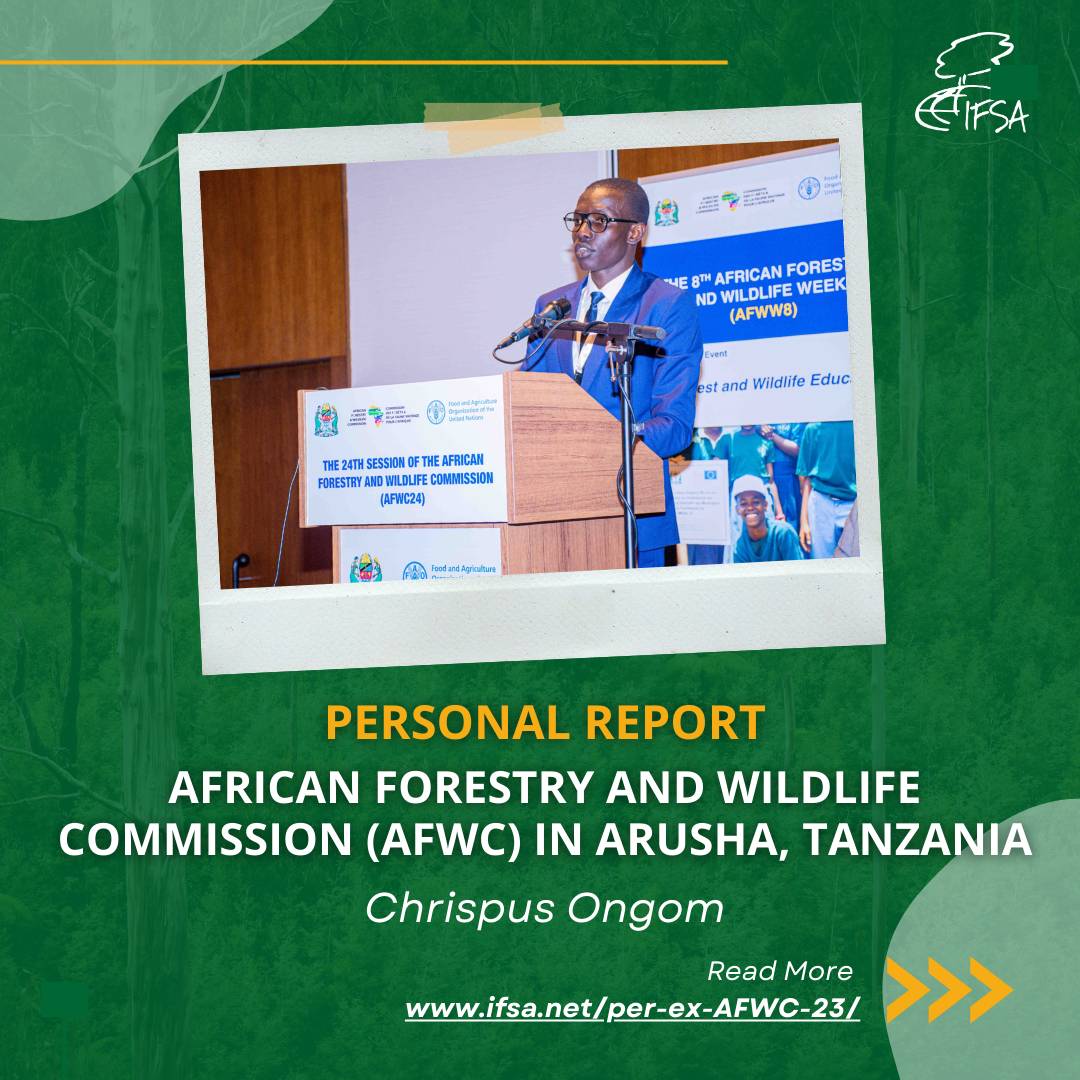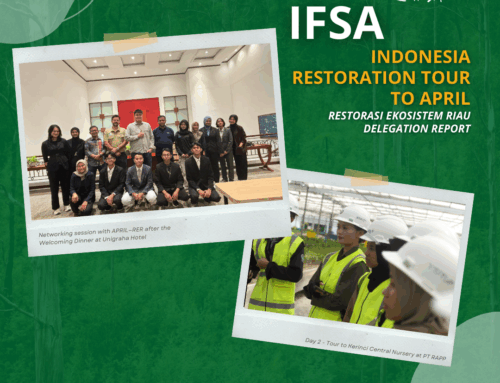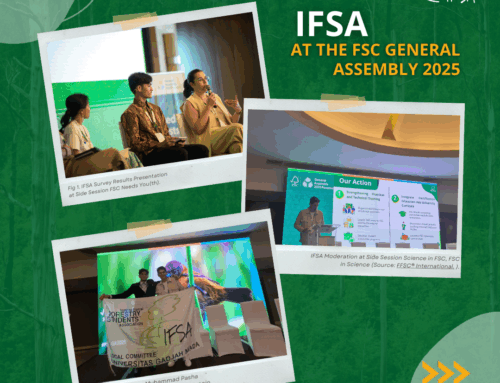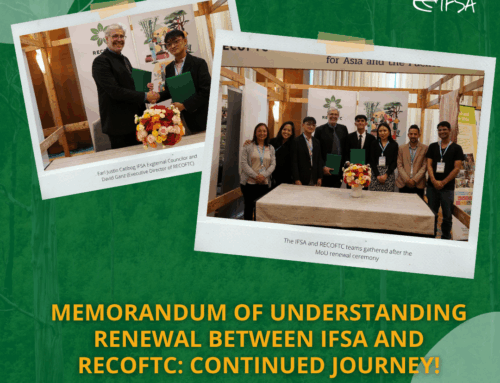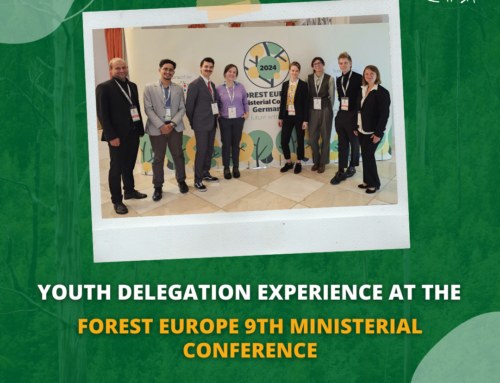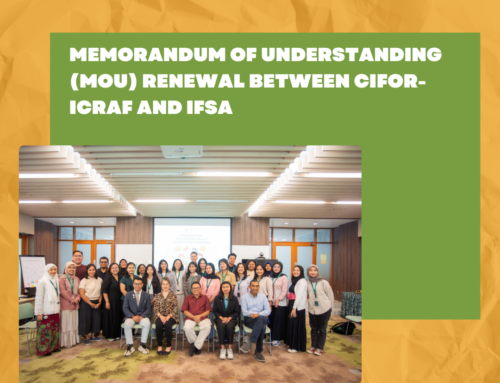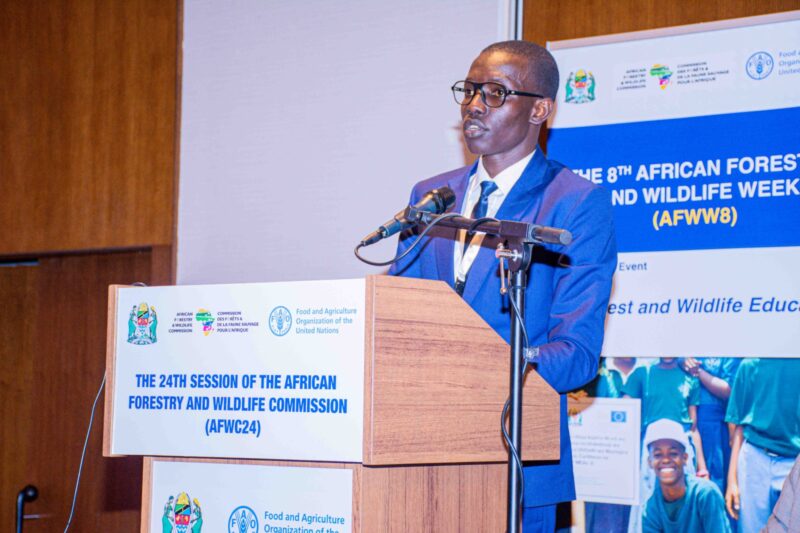
My name is Chrispus Ongom from LC FAMU, Uganda. I was recently elected as IFSA Executive Secretary for the term 23/24 during IFSS 2023 in Germany. Previously, I had been serving as Regional Representative for Southern Africa for the IFSA term 2022/23.
I was privileged to be invited by FAO to the 24th Session of the African Forestry and Wildlife Commission (AFWC24) and the 8th African Forestry and Wildlife Week (AFWW8). This event took place from 30th October to 3rd November 2023 at the Gran Melia Hotel, Arusha, United Republic of Tanzania. The theme of AFWC24 was “Sustainable Management of Africa’s Forests and Wildlife Resources: Boosting Food Security and Resilience to Climate Change for Improved Livelihoods”
The purpose of AFWC24 was to advise on the formulation of forest and wildlife management policy and to review and coordinate its implementation at the Regional level, to exchange information and advice on suitable practices and action concerning technical problems, and to make appropriate recommendations in relation to the foregoing.
The event was marked by several sessions which you can access the details here. I will share my experience with Forest Education and Wildlife education as a key to sustainability. AFWC24 recognized forestry and wildlife education as crucial in promoting sustainable management of forest wildlife. I was particularly invited to make a presentation on the perception of a forestry career among young people.
Hands down, forestry and wildlife education is crucial for sustainable development. Further, the need to ensure all learners acquire the knowledge and skills for sustainable development in expressed multiple international frameworks including the United Nations Plan for Forest 2017-2030. However, Forest education is still insufficient in different parts of the world according to the Global Assessment of Forest Education. Yet, it is a time when the world is in crisis and needs forestry experts.
Among young people, the Forestry career is still very unpopular and very few are willing to pursue it. Most students who get themselves into the Forestry Program did not initially apply for it as their first choice. Even those who go on to pursue face a lot of discouragement. This is due to adverse comments from the community about the course, limited decent employment opportunities, limited information about what the course entails, and limited interaction between professionals and potential forestry students among other reasons. However, those who get themselves into the forestry program over time do not have regrets about the decisions they have made. This is an indication that the forestry sector has a lot of potential than the community perceives.
If many students are to be attracted into forestry, the sector needs to be well facilitated, technology needs to be incorporated into education modules, decent employment opportunities need to be created, the gap between the Forestry professionals and forestry students needs to be narrowed, and students need to be given opportunities to participate in policy formulations among others options. It is great that FAO values forest and wildlife education as a critical step to realising sustainable management of forests and wildlife.
During the IV Forestry Congress in Seoul, Korea, there was a Youth Call for Action. If this can only be implemented, more students will be attracted to pursue forestry, hence promoting forestry education and preparing more Forestry experts to address the world forestry and wildlife crisis.
AFWC24 also acknowledged that forestry education does not only end in school—it involves reaching out to communities and equipping them with the knowledge and skills in sustainable use of forest resources.
In conclusion, knowledge is power! It is our role as forestry students to extend the knowledge we have acquired to our communities to understand the value of forests and also how to sustainably use them. If we do this, then we can create a world that appreciates forests and everyone will live in harmony with forests.
Author: Chrispus Ongom
